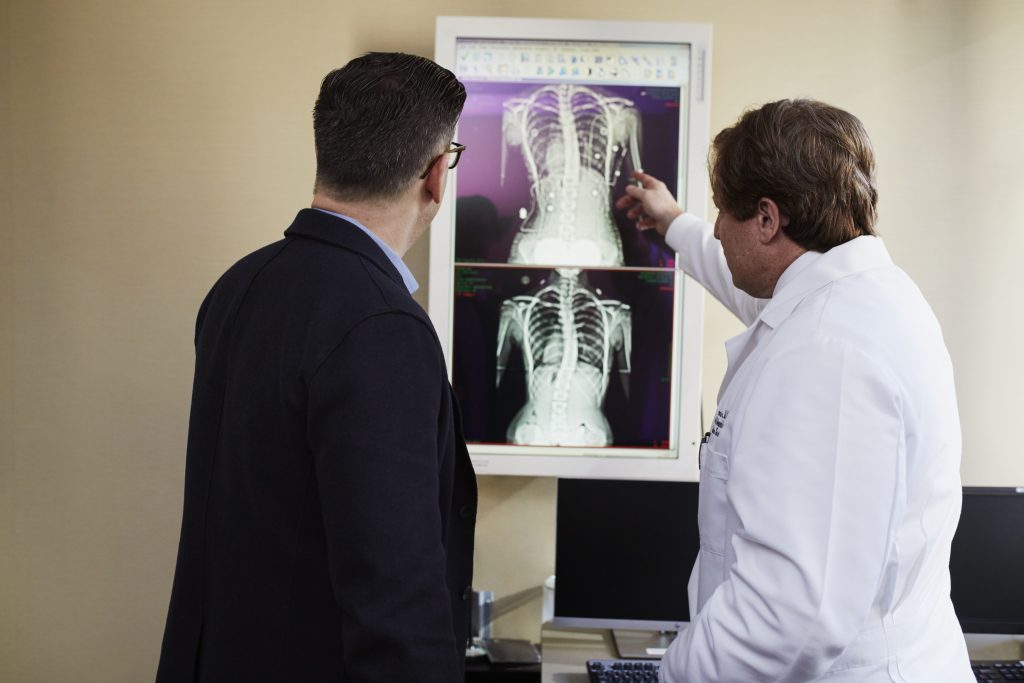 Injuries on the job can be devastating. Though the injuries themselves may be painful, the loss of a livelihood that may follow can be even worse. As a result, Louisiana has implemented workers’ compensation programs in order to provide relief for employees who are injured on the job. However, there are caveats that exist and not all injured employees may receive workers’ compensation.
Injuries on the job can be devastating. Though the injuries themselves may be painful, the loss of a livelihood that may follow can be even worse. As a result, Louisiana has implemented workers’ compensation programs in order to provide relief for employees who are injured on the job. However, there are caveats that exist and not all injured employees may receive workers’ compensation.
While training for employment as a security guard for Covenant Services Worldwide (“Covenant”), Bonnie Frazier suffered a rotator cuff tear in her right shoulder. Frazier underwent three surgeries on her right shoulder. Covenant paid for Frazier’s treatments. Despite her surgeries, Dr. Felix Savoie restricted Frazier from lifting five pounds over her head, twenty pounds from her waist to her shoulder, and thirty pounds in any circumstances.
Fraizer eventually accepted a security officer position that entailed driving and periodic running. One day at work, Frazier asked her manager Vicki Bryant if she could leave work because she was suffering from severe shoulder pain. Bryant sent for another security guard named Jill Delatte. Before letting Delatte take over, Frazier wrote a note explaining that she was leaving work because of severe shoulder pain. In a recorded statement, Delatte reported that Bryant told Frazier that if she was going to quit, she was to leave her vest, badge and uniform. Frazier gave her vest and badge with Delatte and never showed up to work again. Almost a year later, Frazier filed a Disputed Claim for Compensation Form 1008, arguing that Covenant had unlawfully terminated her supplemental earnings benefits (“SEBs”). The Office of Workers’ Compensation (“OWC”) judge, however, found that because Frazier herself had terminated her employment, Covenant did not owe her any SEBs.
 Louisiana Personal Injury Lawyer Blog
Louisiana Personal Injury Lawyer Blog


 Workers’ compensation programs may provide you with some relief for an injury. However, it is important to note that depending on your recovery and other factors, you could be taken off such programs. This is because legislators want people to work if they are able. Though many people who depend on workers’ compensation programs truly deserve it, some people abuse the system.
Workers’ compensation programs may provide you with some relief for an injury. However, it is important to note that depending on your recovery and other factors, you could be taken off such programs. This is because legislators want people to work if they are able. Though many people who depend on workers’ compensation programs truly deserve it, some people abuse the system.  The five factor
The five factor  Everyone gets injured, but what happens when you are injured on the job and had been in an accident in the past? Does the court take that into consideration if you file a lawsuit, or does the court presume an accident was work-related? In one local case, the workers’ compensation judge found that the injury at issue was not caused by the work accident. The injured party, Todd Porche (“Porche”), appealed this determination.
Everyone gets injured, but what happens when you are injured on the job and had been in an accident in the past? Does the court take that into consideration if you file a lawsuit, or does the court presume an accident was work-related? In one local case, the workers’ compensation judge found that the injury at issue was not caused by the work accident. The injured party, Todd Porche (“Porche”), appealed this determination.  Can a court reinstate a former city employee’s job after being wrongly terminated? Well, fortunately for Mr. Turner, the answer is yes.
Can a court reinstate a former city employee’s job after being wrongly terminated? Well, fortunately for Mr. Turner, the answer is yes.  When an employee is injured on the job, workers’ compensation insurance often delivers more expediently than going through the courts. Unfortunately for the employee, it is also often less money than an injured employee could be awarded by suing the employer. As a Baton Rouge man recently learned, your type of employer can determine whether or not you’re able to sue your employer for work-related injuries.
When an employee is injured on the job, workers’ compensation insurance often delivers more expediently than going through the courts. Unfortunately for the employee, it is also often less money than an injured employee could be awarded by suing the employer. As a Baton Rouge man recently learned, your type of employer can determine whether or not you’re able to sue your employer for work-related injuries.  For some people, getting fired from work is like receiving the death sentence. In the following case, an employee was fired without any reason by his employer. The employer also tried to shortchange him by not giving him his earned wages. However, the employer fought back and, more or less, was vindicated under Louisiana law.
For some people, getting fired from work is like receiving the death sentence. In the following case, an employee was fired without any reason by his employer. The employer also tried to shortchange him by not giving him his earned wages. However, the employer fought back and, more or less, was vindicated under Louisiana law. UPDATE:
UPDATE: In deciding whether to dismiss a specific case, the Appellate Court should consider many factors. Among them are subject matter jurisdiction and statutory of limitation. The claims might be dismissed if they are filed to a wrong court which does not have the legal power to adjudicate on this case, or if they are filed too late (peremption) because laws encourage people to file a lawsuit timely.
In deciding whether to dismiss a specific case, the Appellate Court should consider many factors. Among them are subject matter jurisdiction and statutory of limitation. The claims might be dismissed if they are filed to a wrong court which does not have the legal power to adjudicate on this case, or if they are filed too late (peremption) because laws encourage people to file a lawsuit timely.